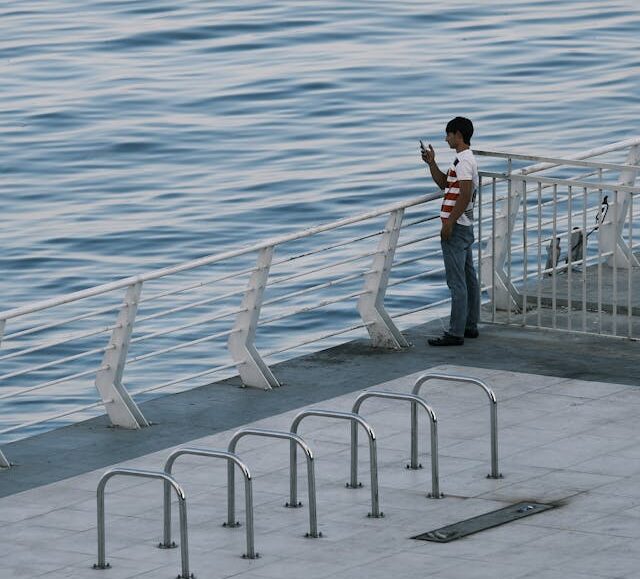Write Us: hello@ali5.org
The Future of Remote Work: Is the 9-5 Office Dead?
Is the traditional 9–5 office becoming a thing of the past? Explore how remote work is reshaping jobs, productivity, and what the workplace looks like in the future.

Let’s not pretend otherwise, the way we work has changed for good. The pre-2020 office routine? It’s not coming back the way it was. What started as a stopgap during the pandemic has turned into a permanent shift. And now, in 2025, we’re all facing the same question: is the traditional 9-to-5 job officially outdated?
Short answer? Not completely. But let’s just say it’s not looking great for the old model.
Here’s what’s really going on, and what it means for how we work, live, and balance the two.
💻 Remote Work Isn’t a Trend. It’s the New Norm
What began as a response to a crisis turned out to be a wake-up call. Once everyone was forced to work from home, the big secret was out: you don’t need to sit in an office to get things done.
We got comfortable with Zoom calls. We learned to collaborate over Slack, Notion, and Google Docs. We found ways to track progress without micromanagement.
By now:
-
Over 60% of employees worldwide say they prefer jobs that offer remote or hybrid flexibility.
-
Entire companies are being built with no physical office at all.
-
Even big corporations are downsizing their office real estate to save costs.
So, no, it’s not just a phase. It’s a recalibration of how work can work.
⏰ The 9-to-5 Model? It’s Cracking.
Let’s be real: that rigid schedule was never built for the kind of work most of us do now. It made sense when people were clocking into factories or managing paper files. But today?
If your job involves a laptop, stable internet, and a brain, chances are your most productive hours don’t neatly fit into 9 to 5.
Now, people want:
-
Flexible schedules that actually match their energy levels
-
Time in the day for their kids, a walk, a doctor’s appointment
-
Space to focus without being “watched” or stuck in meetings all day
More companies are finally catching on: it’s not about hours logged, it’s about work delivered.
🧠 Why Workers Are Pulling Away from Traditional Office Life
Look, working in an office wasn’t all bad. There was the occasional fun coworker, team lunches, maybe even a good brainstorming session. But for a lot of people, it also meant:
-
Wasting hours in traffic
-
Being dragged into meetings that could’ve been emails
-
Dealing with office politics
-
Losing precious time with family or for self-care
Once people got a taste of life without all that… they weren’t in a rush to go back. And in survey after survey, a large chunk of workers say they’d even accept a lower salary just to keep that freedom. That says a lot about what people really value now.
🏢 Why Some Companies Still Want Butts in Chairs
Of course, not every employer is cheering for this shift. Some leaders still argue that in-person work drives better collaboration, makes onboarding easier, or helps preserve “company culture.”
That’s not completely wrong, some teams do work better face-to-face. And not everyone thrives in isolation. Some folks feel more focused in a dedicated office, or miss the human connection.
That’s why a lot of companies are settling on hybrid setups. A few days in, a few days out. Enough face time to stay connected, enough flexibility to breathe.
🌍 Not Everyone Gets the Same Remote Work Experience
This part matters. While remote work is opening doors for some, it’s also exposing some serious gaps.
-
Not all regions have reliable, fast internet.
-
Not everyone has the luxury of a quiet home office.
-
And let’s not forget, many jobs simply can’t be done remotely. Think nurses, factory workers, drivers, and restaurant staff.
So while remote work is thriving in tech, marketing, design, and other white-collar roles, it’s far from universal. And the divide between those who can work from anywhere and those who can’t? It’s only growing.
🛠️ What’s Making Remote Work Easier in 2025
The tools have gotten better, way better.
We’re not just relying on Zoom anymore. Now, teams use:
-
Notion, Trello, and ClickUp to organize tasks and projects
-
Slack and Microsoft Teams for ongoing conversations
-
AI tools that write meeting notes, schedule calls, and help manage workload
-
AR/VR platforms that make remote meetings feel a little less stiff and screen-y
Are they perfect? No. But they’re making remote work smoother, faster, and more collaborative than ever before.
📈 Why Employers Are Leaning In, Too
Remote work doesn’t just benefit employees. It helps companies, too.
-
Office rent? Slashed.
-
Utility bills? Down.
-
Talent pool? Now global.
-
Productivity? In many roles, actually up.
Companies that get this right are seeing lower turnover, more engaged employees, and better bottom lines. The trade-off? Learning to lead by trust, not control.
🤔 So… Is the Office Dead?
Here’s the truth: the office isn’t dead, but its role is evolving.
Instead of being the default, it’s becoming:
-
A space for intentional collaboration
-
A place for creative sprints, team-building, or deep work days
-
A hub, not a daily requirement
People won’t be expected to sit at a desk five days a week “just because.” The new model is flexible, fluid, and way more focused on purpose.
🔮 What Comes Next?
Here’s what’s already on the rise:
-
Four-day workweeks—gaining traction in more countries
-
Work-from-anywhere policies, especially in tech and startups
-
Digital nomad visas are being offered by countries like Portugal, Thailand, and Estonia
-
AI-powered workflows that help teams collaborate across time zones
-
Worker-driven change, especially from younger generations demanding a better balance
This isn’t just a blip. It’s the foundation of a long-term shift toward how we work, not just where.
✅ Final Take
The 9-to-5 office job isn’t dead. But it’s changed. And it’s not going back.
People don’t just want work, they want flexibility, autonomy, and a life outside their inbox. Companies that understand that will win the talent war. The ones that don’t? They’ll struggle to hire, retain, and stay relevant.
So whether you’re managing a team, job-hunting, or figuring out your own ideal schedule, the future of work isn’t rigid. It’s adaptive. And it’s already here.







